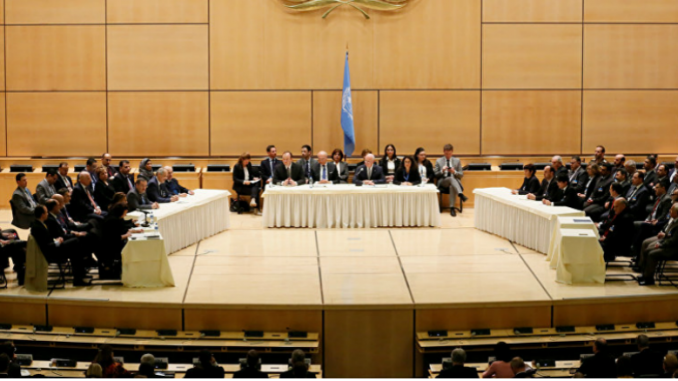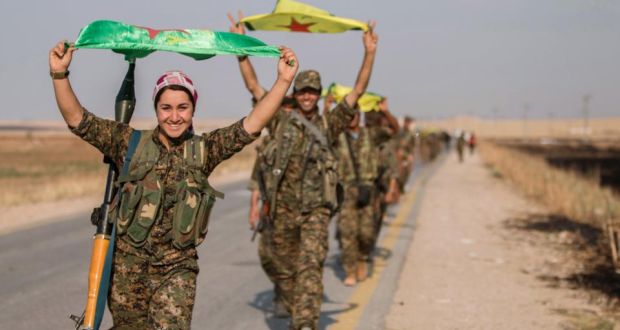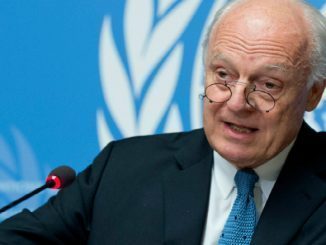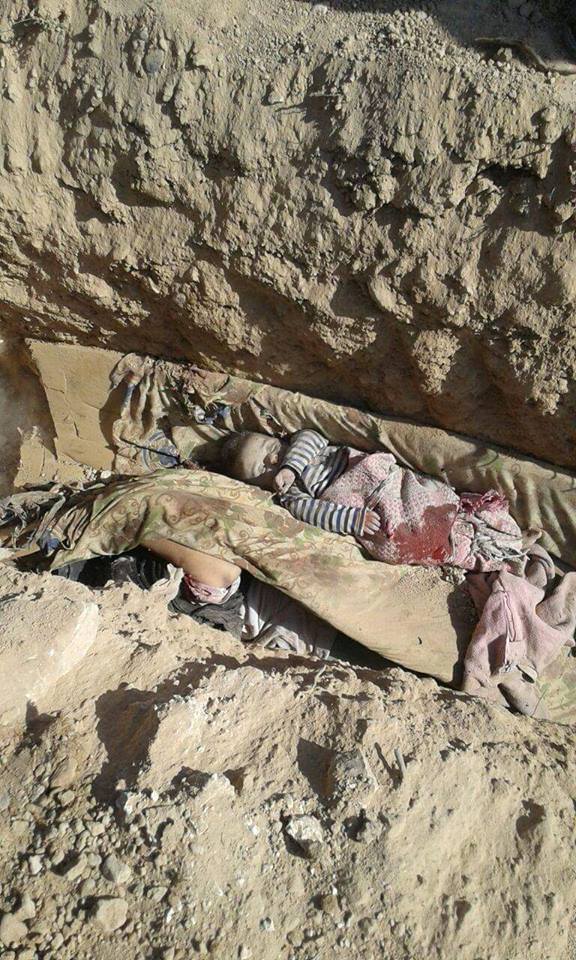
UN-backed Syria peace talks resumed in Geneva on Thursday as battles raged in Hama and Damascus after the rebels’ new attacks. To no one’s surprise, the talks started with a little hope of a breakthrough, as both pro-regime and opposition delegations have shown no flexibility in their stances.
The latest round of Syria peace talks has started in Geneva on February 23. after it was previously planned to be on February 8. but delayed in order to take advantage of the results of Astana settlement about the ceasefire in Syria, which was planned by Russia, Turkey, and Iran.
The UN special envoy for Syria, Staffan de Mistura, addressed the both delegations asking them to work together to help in ending the crisis in the country.
De Mistura told the representatives of both delegations that they had a joint responsibility to end a conflict that had killed hundreds of thousands and displaced millions.
The discussions were almost stalled as both parts insisted on their own goals before the talks and accused each other of trying to hinder talks.
The opposition’s delegation accused the regime delegation of seeking to hinder the peace talks as its head said the main goal of the talks should be combating terrorism without mentioning the political process, while regime forces in Syria kept breaching the ongoing shaky truce and killed dozens of civilians since the talks started.
However, both sides could point to small victories. The opposition said that the question of political transition was seriously addressed for the first time, while U.N. envoy Staffan de Mistura said counter-terrorism – an issue pushed by Assad regime’s delegation – had been added to the agenda.
New round of peace talks
The US-brokered peace talks were resumed in Geneva on Thursday with little hope of reaching any real results.
UN Special Envoy for Syria Staffan De Mistura is scheduled to be in Ankara on Thursday as part of his diplomatic tour, which also included Moscow and Riyadh.
On Wednesday, de Mistura met with Russian Foreign Minister Sergei Lavrov in Moscow, the Russian Foreign Ministry said.
De Mistura noted the need for political progress in Syria, saying he arrived in Moscow to assess the situation, according to the ministry’s statement.
The UN envoy is later scheduled to travel to Turkish capital Ankara, before departing for Geneva.
The UN’s deputy envoy, Ramzy Ezzeldin Ramzy met separately with government negotiators and the main opposition High Negotiations Committee (HNC) at hotels in the Swiss city.
“We have started today preliminary talks,” Ramzy told reporters after his meeting with Syrian President Bashar al-Assad’s representatives.
“We hope we will be starting substantive discussions tomorrow.”
A stalemate persists over most of the toughest issues, notably Assad’s fate, with the opposition insisting he quit power and the government declaring the president’s future off limits for discussion.
HNC delegation chief Nasr al-Hariri told reporters after meeting Ramzy that his camp was in Geneva to “guarantee the departure of Bashar al-Assad and his clique”.
No big expectations
De Mistura tried to strike an optimistic note when the previous round ended last month, insisting that “everything is ready” for the talks to move forward while reiterating his view that there is no military solution to Syria’s devastating civil war.
But analysts disagree with the UN envoy, putting the chances of compromise at an all-time low, due in part the regime’s increasingly strong position on the ground.
“My assessment is that there will not be a formal political settlement at all,” Yezid Sayigh, a senior fellow at Carnegie Middle East Center, told AFP.
“Regime advances make this almost a certainty,” he added.
Since Russia’s military intervention in support of Assad in 2015, the regime has gained the upper hand, retaking the former rebel bastion of Aleppo late last year.
For Syria specialist Thomas Pierret, as “the regime continues to gain ground … there’s no reason for it to make the slightest concession.”
But HNC spokesman Salem al-Meslet told journalists late Wednesday that he hoped this round would “see real talks, not only a waste of time.”
“We still insist on direct negotiations”, Meslet told reporters.
An already fragile ceasefire has deteriorated further in recent days after rebels and allied Islamist militants launched two surprise offensives on government positions in Damascus and central Hama province, in response to Assad regime’s campaigns on rebel-held areas despite the ceasefire.
The pro-government Al-Watan newspaper quoted an unnamed government negotiator as saying that the Damascus and Hama violence “make it clear and without any doubt that these groups and the countries who operate them want to… undermine any chance of finding a solution.”
Hariri described the escalation of violence around Damascus as “self-defence.”
So far, there is no plan for the government and rebels to meet face-to-face.
De Mistura has said he wants to unify the HNC with two smaller opposition camps — known as the Moscow and Cairo platforms — before presenting the government with a single rebel delegation.
Ramzy was scheduled to meet the Moscow and Cairo groups later Thursday, but uniting them with the HNC could be tough due to disagreements over core issues, including Assad’s future.
The Syrian crisis began as a peaceful demonstration against the injustice in Syria. Assad regime used to fire power and violence against the civilians and led to armed resistance. 450.000 Syrians lost their lives in the past five years according to UN estimates, and more than 12 million have lost their homes.



